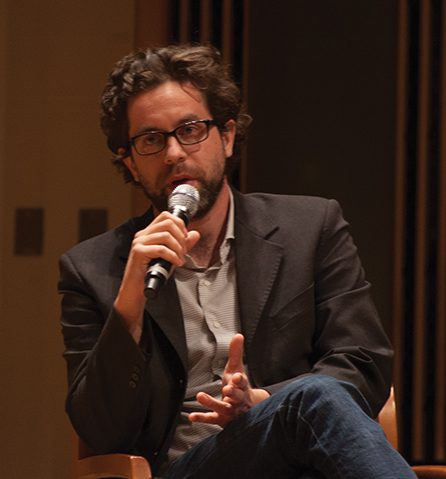Event

“First the movement, and then what moves”: On Eisenstein’s Idea of Cinema
The question of movement in cinema refers to two related yet distinct aspects. There is the facticity of movement, which refers to cinema’s technological ability to record and project images that no longer merely represent movement but are themselves moving. Movement-images are the intractable given of cinema. However, precisely because movement is something like a given, accomplished in a seemingly automatic way, it becomes a problem for filmmakers. The ease with which movement is accomplished technologically turns it into an object of intellectual and artistic unease. “Movement might be a given, but how do we nevertheless produce it, take it up as a problem for thought?”
We must therefore speak also of the idea of movement. The idea of movement is not a given but rather a constructible condition of cinema. It is from its perspective that the facticity of movement can be assumed, motivated, and made into an element of thought. The idea of movement determines the style of a particular filmmaker or the possibilities and limits of this or that cinematic genre.
The talk will take up the question of movement by considering the case of Sergei Eisenstein. Eisenstein’s work can be read as an attempt to develop a conception of movement capable of providing movement with unity, while at the same time allowing it to develop an astonishing plurality of its forms. It is well known, for instance, how Eisenstein exploded the limits of the parallel and alternating movement of Griffith’s montage in order to push the cinematic fiction of movement towards greater dialectical and experimental possibilities. Through Eisenstein’s films, theoretical writings, and graphic art the talk will consider his idea of movement and what it can still tell us about cinema more generally.
Luka Arsenjuk received his B.A. from the University of Ljubljana (2002) and his Ph.D. from the Program in Literature at Duke University (2010). His interest is in the relationship between cinema, politics, and philosophy (aesthetics and critical theory). He has published essays on Jacques Rancière’s concept of politics, cinema as mass art, Eisenstein’s idea of intellectual montage, Alexander Kluge and the filming of Marx’s Capital, as well as on how to survive encounters with the specters of cinema. With Michelle Koerner, he co-edited an issue of Polygraph: An International Journal of Culture and Politics (issue 21, Study, Students, Universities, 2009). Currently, he is working on a book on the Soviet filmmaker and theorist Sergei Eisenstein.
